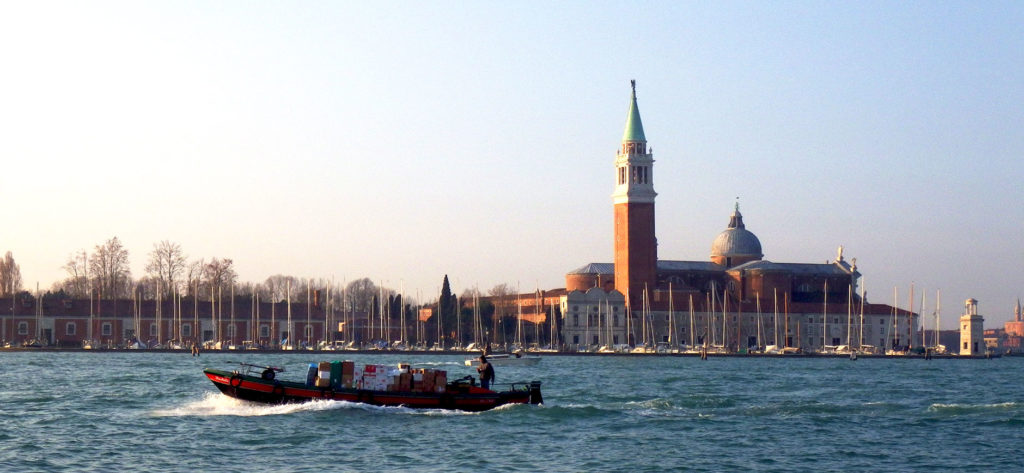
This experience allows students to explore Italy from an unusual perspective, and supports their studies with hands on and on the field activities.
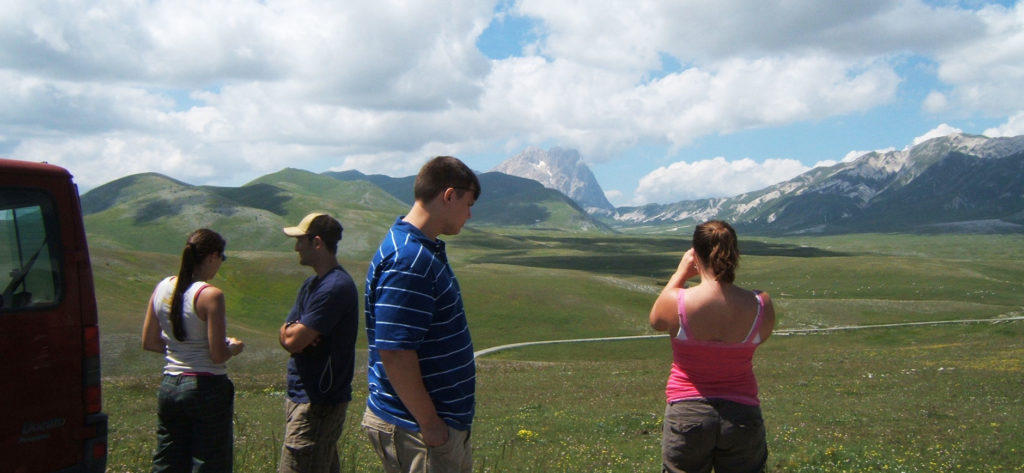
A thematic week in Abruzzo: experience medieval archeology, local traditions and nature.
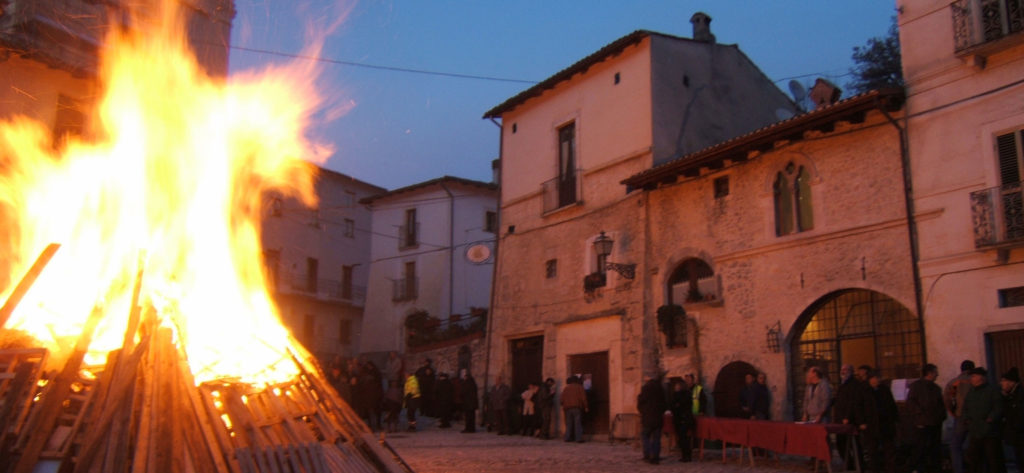
These short programs are aimed to universities that currently conduct courses in Italy and would like to offer an innovative experience to their students.
Ingredients For Your Travel
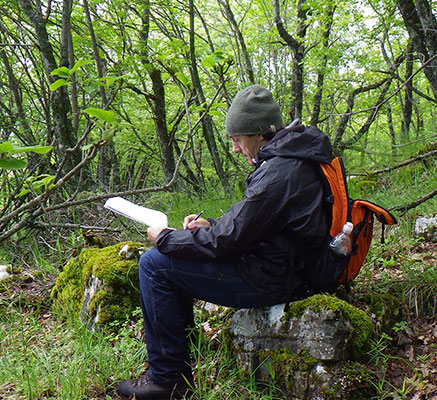
Identification of niche markets related to “tribes” of people who share a passion (e.g. bikers, birdwatchers, climbers, botanists) and a common slang, “mythology”, gurus etc. How to organize rural areas to make them attractive for specific tribes. On field classes with students, meetings with stakeholders and visits to investigate best practices.

Visiting Chioggia fish market for its daily public fish auction and meeting biology researchers from the ISPRA Institute in the Venice lagoon.
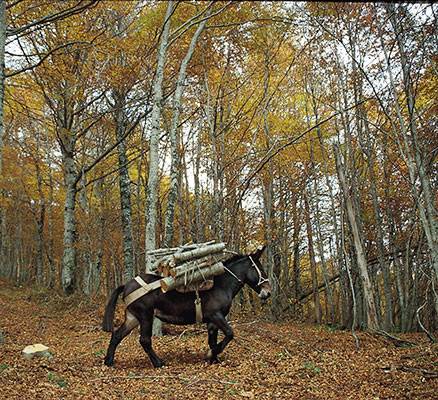
The Model Forest International Network experience in Val di Sieve. How to develop a forested area sustainably while preserving its natural and cultural identity.
Meeting with the Centro Universitario Europeo of Ravello (based in the magnificent Villa Ruffolo) to discuss the planning process they manage. Visits to the wonderful terraced land system, meeting farmers, property owners and tourism managers.
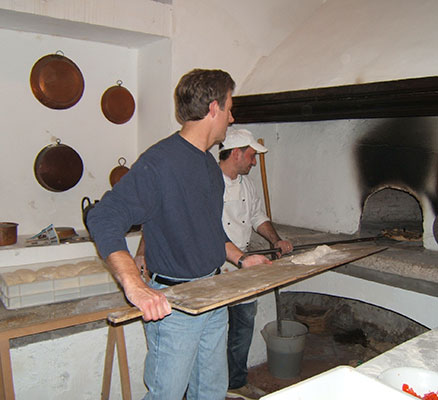
The University of Gastronomic Sciences in Bra focuses on all aspects of sustainable agriculture and food production. Visits to the University facilities and lectures by local professors will introduce students to the vast and fast-growing world under the umbrella of the Slow Food movement.
Cinque Terre National Park managers have hosted university groups studying the economics of park management, dry stone wall maintenance, and innovative techniques to raise awareness and interest in preservation, such as selling “adoption” shares for dry stone wall maintenance, branding local traditional produce, etc...
The “Magnifica Comunità di Fiemme” in the town of Cavalese (Italy) in the Dolomites provides many opportunities to study the 1000-year-old history of managing common land (forests, pastureland, mountain cottage, sawmills), which made it rich enough to incubate a school of famous renaissance painters that flourished in the 16th century and to supply the fire wood for the famous Stradivari violins.
Exploring the city of Palermo and surrounding countryside, which have been, and still are, at the centre of the criminal and social phenomenon of the “Mafia”. Discovering how it works and the many different initiatives (“pizzo”/protection-free enterprises, farming land seized from Mafia bosses etc.) developed by local communities to combat “cosa nostra” and change the way the local economy works.
Visiting the archeological sites of Selinunte, Segesta, Agrigento and Paestum, discovering how the temples were built and the landscape evolved over the centuries.

Visiting farms and food factories using innovative approaches to make and sell their produce: organic or biodynamic farming, farm-to-fork, farmers markets, DOP branding, top quality wine production, the success of Eataly etc...
How can a small, depressed and marginal town of southern Italy be recovered and re-launched? This intriguing story has become a best practice.
Genova was historically a rich commercial and financial hub. After the last war, together with Turin and Milan it mapped out Italy’s “industrial triangle”. Following decades of industrial decline, it is now successfully tapping into the culture and tourism market. Local experts will help us revisit the key stages of the city’s transition.
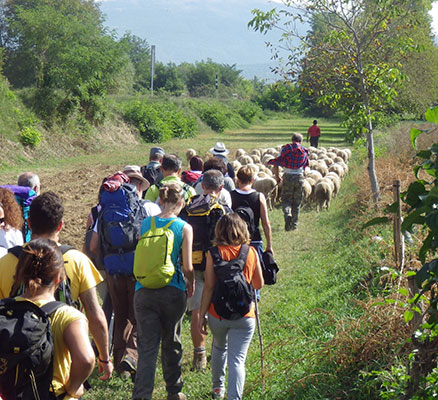
History and economy of the Abruzzo ancient pastoral system, which enabled L’Aquila to flourish during the late Middle Age and Renaissance. From Abruzzo to Puglia, along ancient sheep trails, visiting castles, monasteries, churches, historic towns and archeological sites. A day with shepherds, visits to traditional sheep farms, production of yarn and wool handicraft (from shearing to knitting, hands-on experience).
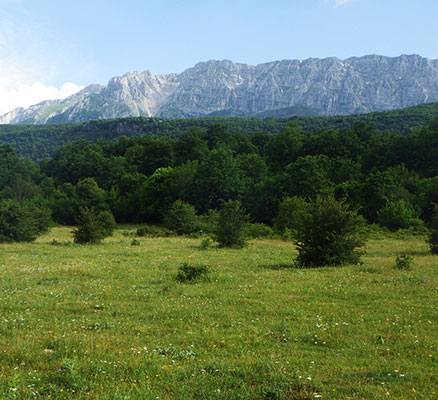
The Gran Sasso, Sirente – Velino and Abruzzo National Parks are managed very differently from other Parks in the world. There are often many villages inside the parks, so policies need to encourage interaction between citizens and protected areas. Conflicts and partnerships, job opportunities and innovative social frameworks can bloom in these special economic and environmental conditions: how can all this be managed best?
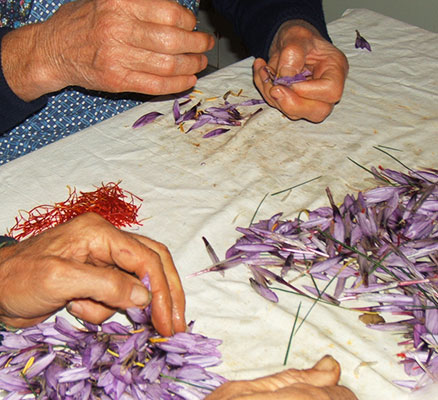
Excellence produces in the Apennines. Saffron, black truffle, wide varieties of ancient mountain grains: students can find out about the economy, cultivation and harvesting of local products, and experience cooking local recipes.
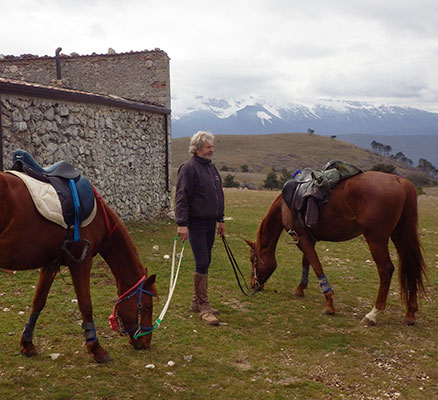
Abruzzo case study to shape tourism services and packages based on the unique selling points of rural tourism: distinctive historical, culinary, natural and cultural identities. Meetings with stakeholders, visiting best practices, simulating customer demand, planning programs to fit their needs.
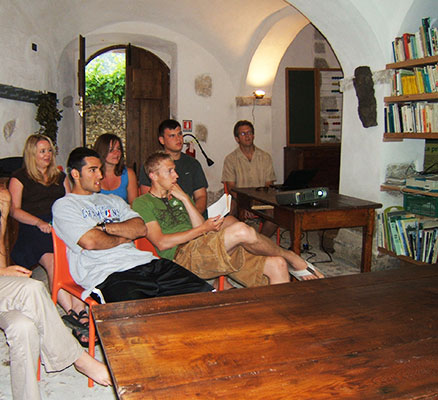
In the 17th century, Fontecchio and many other small villages within the old kingdom of Naples, compiled records of family wealth called “Catasti Onciari”. These are similar to the Florentine Catasto but very few of them have been translated or analyzed by historians and economists. ILEX recently transcribed the “Catasto Onciario” of Fontecchio, which was used by the Pacific Lutheran University for economic history research. Many of these documents are still preserved in the National Archive of L’Aquila and used for education and research.
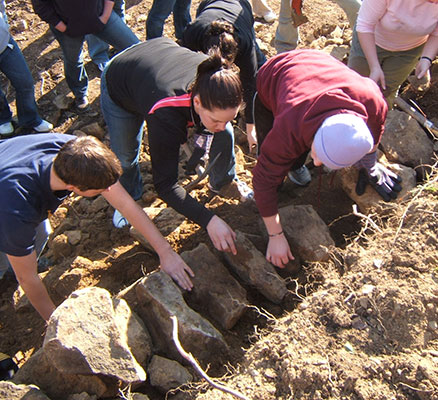
Some organizations in the Aterno valley are using an innovative approach to maintain the many old footpaths crossing the land, used by citizens and tourists to walk from village to village. Each association has adopted a footpath. In spring footpaths are opened and vegetation is cleared. Students experience this ancient activity and learn how to build or restore the old stone walls.
The wide plateau on the Gran Sasso (at 1500-2000m altitude) has been shaped by millions of sheep grazing on it for centuries. A lot of snow falls on the plateau every winter, making it great for cross-country skiing and for visiting remote castles and villages.




 Identification of niche markets related to “tribes” of people who share a passion (e.g. bikers, birdwatchers, climbers, botanists) and a common slang, “mythology”, gurus etc. How to organize rural areas to make them attractive for specific tribes. On field classes with students, meetings with stakeholders and visits to investigate best practices.
Identification of niche markets related to “tribes” of people who share a passion (e.g. bikers, birdwatchers, climbers, botanists) and a common slang, “mythology”, gurus etc. How to organize rural areas to make them attractive for specific tribes. On field classes with students, meetings with stakeholders and visits to investigate best practices. Visiting Chioggia fish market for its daily public fish auction and meeting biology researchers from the ISPRA Institute in the Venice lagoon.
Visiting Chioggia fish market for its daily public fish auction and meeting biology researchers from the ISPRA Institute in the Venice lagoon. The Model Forest International Network experience in Val di Sieve. How to develop a forested area sustainably while preserving its natural and cultural identity.
The Model Forest International Network experience in Val di Sieve. How to develop a forested area sustainably while preserving its natural and cultural identity. The University of Gastronomic Sciences in Bra focuses on all aspects of sustainable agriculture and food production. Visits to the University facilities and lectures by local professors will introduce students to the vast and fast-growing world under the umbrella of the Slow Food movement.
The University of Gastronomic Sciences in Bra focuses on all aspects of sustainable agriculture and food production. Visits to the University facilities and lectures by local professors will introduce students to the vast and fast-growing world under the umbrella of the Slow Food movement. Visiting farms and food factories using innovative approaches to make and sell their produce: organic or biodynamic farming, farm-to-fork, farmers markets, DOP branding, top quality wine production, the success of Eataly etc...
Visiting farms and food factories using innovative approaches to make and sell their produce: organic or biodynamic farming, farm-to-fork, farmers markets, DOP branding, top quality wine production, the success of Eataly etc... History and economy of the Abruzzo ancient pastoral system, which enabled L’Aquila to flourish during the late Middle Age and Renaissance. From Abruzzo to Puglia, along ancient sheep trails, visiting castles, monasteries, churches, historic towns and archeological sites. A day with shepherds, visits to traditional sheep farms, production of yarn and wool handicraft (from shearing to knitting, hands-on experience).
History and economy of the Abruzzo ancient pastoral system, which enabled L’Aquila to flourish during the late Middle Age and Renaissance. From Abruzzo to Puglia, along ancient sheep trails, visiting castles, monasteries, churches, historic towns and archeological sites. A day with shepherds, visits to traditional sheep farms, production of yarn and wool handicraft (from shearing to knitting, hands-on experience). The Gran Sasso, Sirente – Velino and Abruzzo National Parks are managed very differently from other Parks in the world. There are often many villages inside the parks, so policies need to encourage interaction between citizens and protected areas. Conflicts and partnerships, job opportunities and innovative social frameworks can bloom in these special economic and environmental conditions: how can all this be managed best?
The Gran Sasso, Sirente – Velino and Abruzzo National Parks are managed very differently from other Parks in the world. There are often many villages inside the parks, so policies need to encourage interaction between citizens and protected areas. Conflicts and partnerships, job opportunities and innovative social frameworks can bloom in these special economic and environmental conditions: how can all this be managed best? Excellence produces in the Apennines. Saffron, black truffle, wide varieties of ancient mountain grains: students can find out about the economy, cultivation and harvesting of local products, and experience cooking local recipes.
Excellence produces in the Apennines. Saffron, black truffle, wide varieties of ancient mountain grains: students can find out about the economy, cultivation and harvesting of local products, and experience cooking local recipes. Abruzzo case study to shape tourism services and packages based on the unique selling points of rural tourism: distinctive historical, culinary, natural and cultural identities. Meetings with stakeholders, visiting best practices, simulating customer demand, planning programs to fit their needs.
Abruzzo case study to shape tourism services and packages based on the unique selling points of rural tourism: distinctive historical, culinary, natural and cultural identities. Meetings with stakeholders, visiting best practices, simulating customer demand, planning programs to fit their needs. In the 17th century, Fontecchio and many other small villages within the old kingdom of Naples, compiled records of family wealth called “Catasti Onciari”. These are similar to the Florentine Catasto but very few of them have been translated or analyzed by historians and economists. ILEX recently transcribed the “Catasto Onciario” of Fontecchio, which was used by the Pacific Lutheran University for economic history research. Many of these documents are still preserved in the National Archive of L’Aquila and used for education and research.
In the 17th century, Fontecchio and many other small villages within the old kingdom of Naples, compiled records of family wealth called “Catasti Onciari”. These are similar to the Florentine Catasto but very few of them have been translated or analyzed by historians and economists. ILEX recently transcribed the “Catasto Onciario” of Fontecchio, which was used by the Pacific Lutheran University for economic history research. Many of these documents are still preserved in the National Archive of L’Aquila and used for education and research. Some organizations in the Aterno valley are using an innovative approach to maintain the many old footpaths crossing the land, used by citizens and tourists to walk from village to village. Each association has adopted a footpath. In spring footpaths are opened and vegetation is cleared. Students experience this ancient activity and learn how to build or restore the old stone walls.
Some organizations in the Aterno valley are using an innovative approach to maintain the many old footpaths crossing the land, used by citizens and tourists to walk from village to village. Each association has adopted a footpath. In spring footpaths are opened and vegetation is cleared. Students experience this ancient activity and learn how to build or restore the old stone walls.